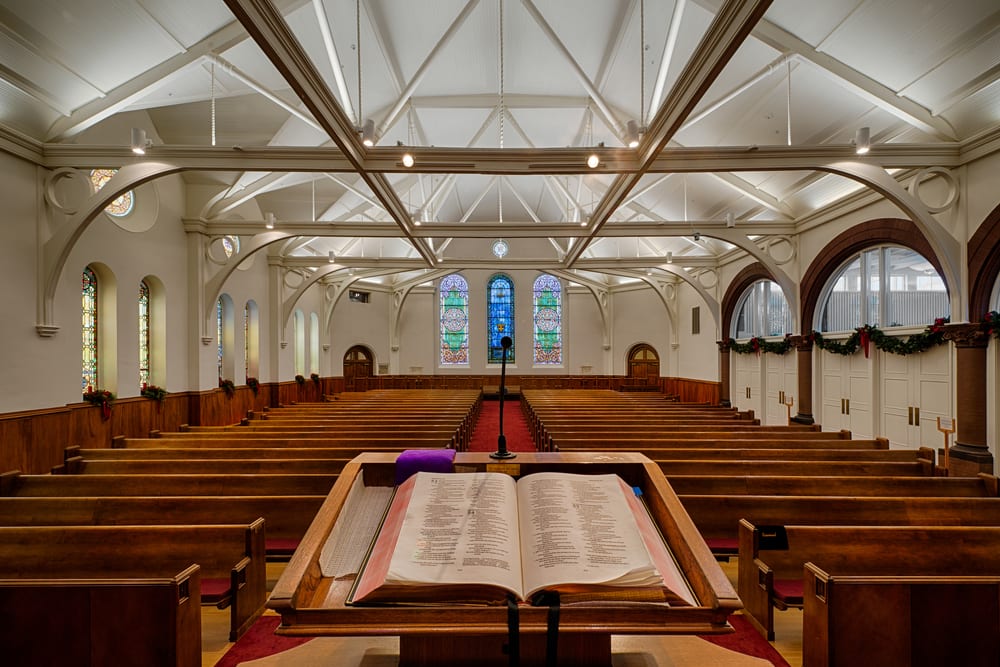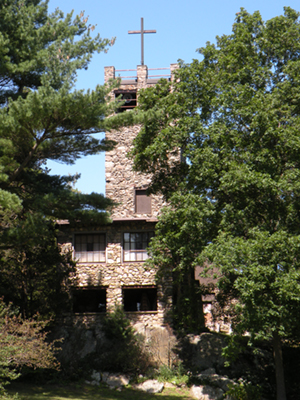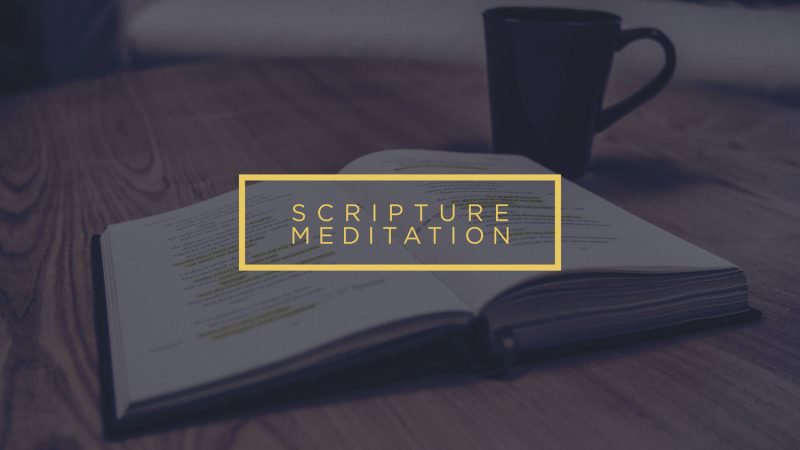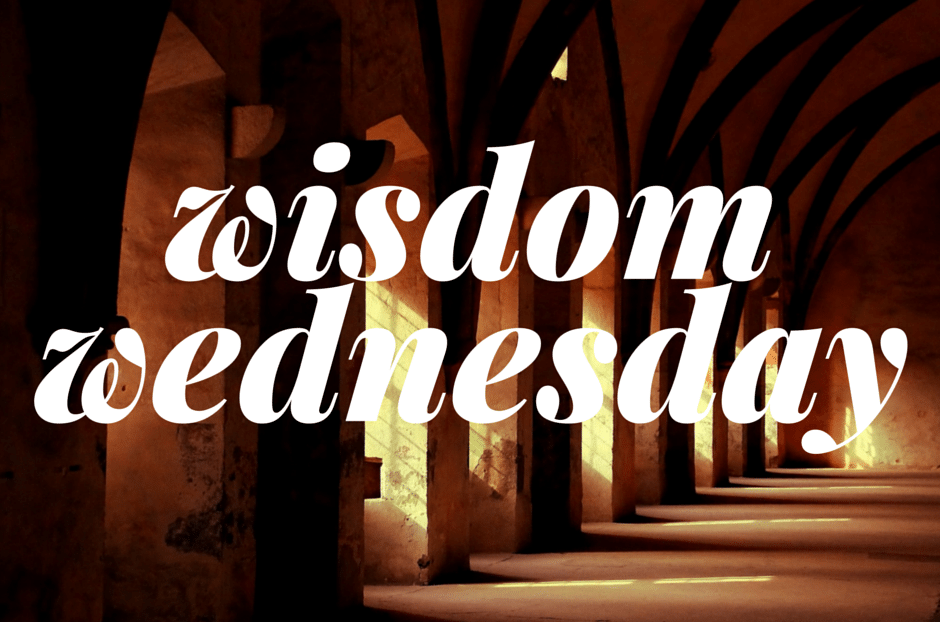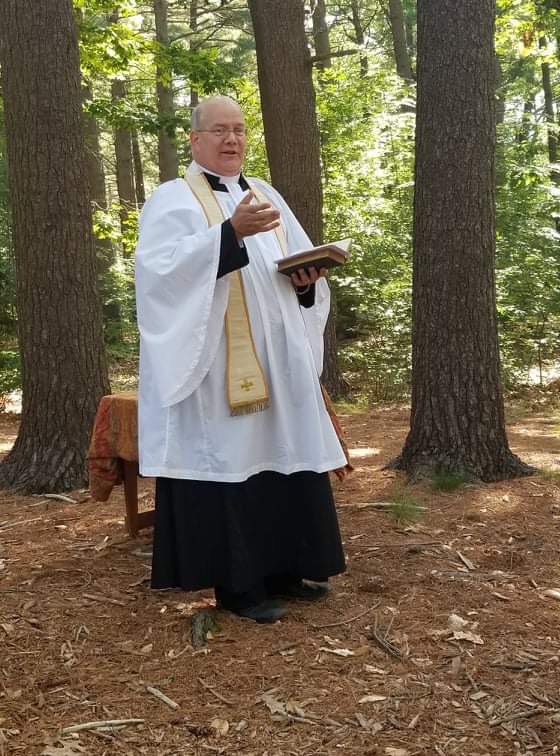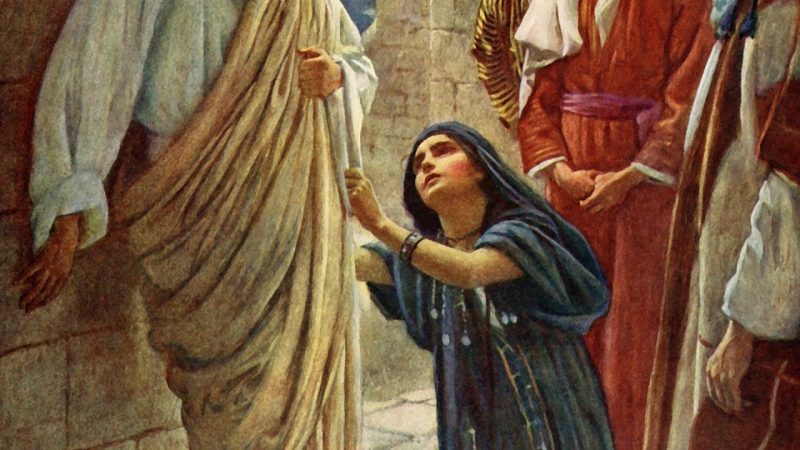The first church I served after ordination was a relatively small congregation in the central part of Massachusetts. The community was approaching the 80th anniversary of its founding, and it had become stagnant in growth. They were holding their own, but the writing was on the wall that something needed to be done and quick.
One day, at a meeting of the other ministers in the town, one of them mentioned that they would start a once-a-month meal that would be served to the community by the folks in the church. Unlike the ones that we had done in the past, this meal would be free for anyone who wished to come. They were going to call them community meals. Community meals were meant to build community. They were not establishing a soup kitchen but rather a place the community could gather and share a meal.
This idea struck a chord in me, and wheels started to turn. I told some of the folks at my church what would happen, and we decided to go to the meal and check it out. It was a simple meal, although I do not remember what was served. There were round tables to encourage conversation, and members of the church served the meals. We sat with folks we did not know but got to know as the night continued. It was a wonderful experience.
The town we were in did not have a homeless population per se but rather an almost homeless population. People were always on the edge and living in fear of falling off. People were food insecure, and many struggled from week to week to put food on the table. So we decided that we would also offer a monthly meal for the community.
I recall that first meal, but just like the meal, we attended I do not know what we served. I would do the cooking, and other folks would pitch in to help serve. We had a simple rule; folks could take as much as they wanted without question and, the folks there to help always ate last. We had about 35 people come to that first meal.
Over the next year, we decided that this meal would be a significant ministry of the church. We increased the frequency from once a month to 3 times a month, and the number of folks that came increased each week. We had an agreement with the local food bank and one of the local grocery stores, and that helped provide the food we needed. We never charged anything, nor did we ask for donations. Most weeks, someone would stick a $10 or a $20 bill in my pocket to help, but the church funded it.
Like most churches, we struggled to make ends meet. Our income did not offset the expenses, and our reserve was dwindling at an alarming rate. The congregation was older, and many were on a fixed income. At this point, the meal had been going on for about three years, and we were feeding on average 80 people a week from our small kitchen in our hall with me and five others helping. At a parish council meeting, a discussion began about stopping the meal due to the cost. I had decided that I would stay out of it, and if the church cut off funding, I was going to find another source. I was astonished when one of the council members, the treasurer, said we had to keep doing the meal no matter what. It is, after all, what church is all about.
Today’s scripture passage speaks of another meal. Jesus has crossed over, and many had come out to hear him speak. His fame had now extended, and many people were coming. Many came to see what would happen next. Perhaps they heard of the healings and other miracles, and they were looking for a show. Many came because someone asked them to come. It did not matter why they came; they were there, and Scripture tells us there were 5,000 men!
Let’s pause for a bit of math. We know it was not just 5,000 men, but the men were the only ones counted. There were families there that day. So, for argument’s sake, let’s assume that half that number 2,500 brought their spouse and half that number had at least one child. We are looking at, conservatively speaking, about 10,000 mouths that needed to be fed. And what did they have? 5 barley loaves and two small fish.
Back to the meal I was serving at the church.
Thanksgiving was coming, and we had decided that we would serve a traditional Thanksgiving Dinner, well as traditional as we could make it anyway. So I organized some sponsors, and we bought five turkeys. Keep in mind we had no idea how many would show up. We served the meal on Thursday nights, so we decided that the week before Thanksgiving would be perfect. Thankfully we had a good size kitchen with commercial equipment so that I could cook all five turkeys at one time.
The food was cooked. Everything was ready. The hour approached, and people started to come in. And come in. And Come in! We very quickly ran out of seats. We set for a few more than our usual 80, figuring it was Thanksgiving. We had people standing in line. We had to ask people, once they were finished, to leave so we could seat more! Some stayed and helped us serve.
There I was in the kitchen, with my five turkeys and a line out the door, wondering how it was all going to work. We picked those birds clean. There was not a scrap of meat left on any of them. But we never ran out. We even had some left. And everyone went away happy. Miracle? I know it was.
But back our Scripture.
Jesus asked Philip how they were going to feed them? Where could they buy bread for all of these people? Philip responded by saying it would take half a year’s wages just for the bread! A very practical concern. But Jesus ordered them to be seated. He blessed what they had, and it was distributed. Everyone was able to take as much as they wanted, and 12 baskets were left. A miracle? Yes, indeed it was.
But what was the miracle? We like to focus on the expansion if you will you the loaves and the fishes. I used that analogy when I spoke with folks after our Thanksgiving miracle. But I think, I believe that the miracle was something much different.
Andrew, Simon Peter’s brother, knew of the boy with the bread and the fish. Perhaps it was the food that the disciples brought with them. In another place where this story is told, Jesus tells them to feed them from what they have. For me, the miracle was that on that day, on that hill, everyone took care of everyone else and made sure no one went without. Each person shared what they had with others, and there was enough that there were 12 baskets of leftovers.
The miracle of today’s story was not what Jesus did. The miracle of today’s story is what each one did for the other.
Back in the ’80s, or maybe it was the 90’s it was fashionable to wear a bracelet with WWJD on it. What Would Jesus Do? It was meant as a reminder for the wearer to ask the question, in all situations, What Would Jesus Do? But I think it asks the wrong question because, and I hope this does not come as a surprise to anyone here, we are not Jesus! So the question we must ask is, What Would Jesus Have Us Do?
The earliest followers of Jesus were called the people of The Way. This is because they followed the example of Jesus in supporting one another, supporting the outcast, supporting those on the margins and doing it without hope of repayment, and doing it with love. There are countless stories of those who have come before us that gave all that they had to serve others, and they did it because it was what Jesus expects us to do, and they did it out of love.
I am not sure how many of you have ever cooked a meal for 80 people, but it is an all-day affair, and it is exhausting. I remember returning home and falling on the couch, simply exhausted from the physical and mental energy it took to prepare that meal. But each week, we did it. We did it, not expecting anything in return. No one who came to the meals ever came to church with us, which is not why we did it.
Friends, following the way, is a radical departure from what the world wants and expects of us. Following the way means we have to love those that the world wants us to hate. Following the way means we may have to put aside what we want to do in exchange for what God wants us to do. Following the way is an action and a lifestyle of love, unconditional love.
Bishop Michael Curry of the Episcopal Church has a saying that I have adopted, and it sums up our lives as those walking the path of the way. “The way of Jesus is the was of love. And the way of love will change the world.” So let’s go and change the world.
Amen.

